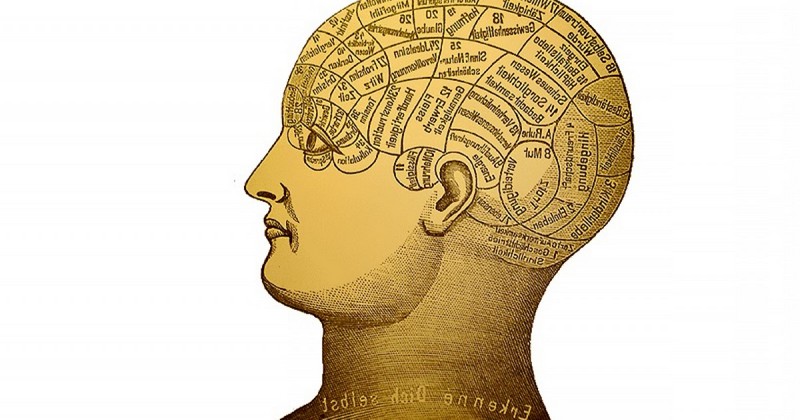What is the difference between a psychologist and a psychiatrist?

Psychiatry and psychology: two similar but by no means identical disciplines.
The clinical psychology and psychiatry are two disciplines applied in the field of mental health that are often confused. The type of problems they deal with and their working methods may have a certain similarity, but there are clear differences between the two.
If you want to avoid confusion of this type, this article may be useful for you to see the differences between the psychologist and the psychiatrist and to distinguish both types of professional profiles.
- If you doubt between the role of mental health professionals, check this post: "The difference between psychologist, psychoanalyst and psychotherapist".
Main differences between psychologist and psychiatrist.
Both psychiatry and psychotherapy are complex concepts in which it is possible to find many distinctive nuances, but in brief, these are the most important differences between the two.
1. The academic background of each discipline
Clinical psychologists and psychiatrists have very different training. The former come from undergraduate and graduate degrees in Psychology and then specialize in clinical psychologypsychiatrists go through a university degree in medicine and then specialize in the field of psychiatry. branch of psychiatry.
Therefore, the skills and knowledge of both professionals are very different: the psychiatrist has more knowledge about the human body as an organism and its neurological functioning, while the psychologist is more trained in social sciences and cultural dynamics.
2. Approaches are often different
As a consequence of the previous point, another difference between the psychologist and the psychiatrist lies in the approach used. The psychiatrist has a biomedical biomedical approach of human behavior and affective states, and therefore focuses on the physiological, anatomical and chemical aspects of the human body (especially those related to the nervous system and hormones).
For his part, the psychologist can adopt more heterogeneous positions that place more emphasis on the social context, personal relationships and culture; although he or she may also adopt an approach that takes the patient's organism as something isolated, depending on the type of psychological current to which he or she ascribes, the Biological will never be the main focus.
This is because psychology studies the interaction between the subject and the environment and the interaction between the subject and others, while psychiatry adopts a somewhat more reductionist perspective (and no less accurate for that reason), analyzing and intervening mainly in variables that affect only the person to be helped: the functioning of the brain, a possible disease affecting certain glands of the endocrine system, etc.
3. The type of problems they treat
Psychiatrists tend to deal with psychiatric disordersPsychiatrists tend to deal with psychiatric disorders, forms of discomfort that can be considered diagnosable pathologies, whereas the phenomena treated by psychologists are more varied and include those that can be addressed by psychiatry.
For example, a case of major depression is a problem in which both a psychologist and a psychiatrist can intervene; however, discomfort due to low self-esteem, a relationship crisis or a lack of motivation at work can be treated by psychotherapy, but hardly by psychiatry. This is due to the fact that psychological intervention is not limited to the field of mental health, but can be adapted to all behavioral patterns capable of providing greater well-being in general.
4. The method of intervention
Another difference between the psychologist and the psychiatrist lies in the way they approach the patient's problems. A psychiatrist almost always uses more or less invasive methodsThe psychiatrist almost always uses more or less invasive methods, since he or she focuses on modifying the functioning of specific parts of the organism. This is why in many of the resources used in psychiatry there is a significant likelihood of side effects, although part of the job of these specialist physicians is to monitor cases to minimize risks and modify treatment quickly when necessary.
In addition, because the psychiatrist is a physician, he or she is legally qualified to prescribe drugs, is legally qualified to prescribe drugsThis is not the case for psychologists, who are responsible for providing psychological counseling and proposing techniques based on habits, patterns of thinking and processing emotions, and behavior in general. Thus, psychotherapy does not seek to modify the dynamics of specific parts of the body, but rather the change sought is in the whole person and his or her habitual context of life.
- Learn more: "Types of psychological therapy".
To sum up...
Ultimately, both disciplines are sufficiently distinct to have their own fields of application, but that does not mean that they are not complementary: they often are.
To speak of differences between the psychologist and the psychiatrist is also to acknowledge their own lines of training and work as relatively independent trajectories, but what is clear is that both approaches are useful when intervening in mental health..
Bibliographical references:
- Feixas, G. & Miró, M.T. (1998). Approaches to psychotherapy. An introduction to psychological treatments. Barcelona: Paidós.
- Lieberman, J. A., Ogas, O. (2015): Shrinks: The untold story of Psychiatry. New York: Back Bay Books.
- Marconi, J. (2001). Psychiatry at the turn of the century: social psychiatry. Revista chilena de neuro-psiquiatría, 39(1), 10-11.
- Sadock, B. J., Ahmad, S. and Sadock, V. A. (2018): Kaplan & Sadock's Pocket Handbook of Clinical Psychiatry. Riverwoods (Illinois): Lippincott Williams & Wilkins.
(Updated at Apr 13 / 2024)